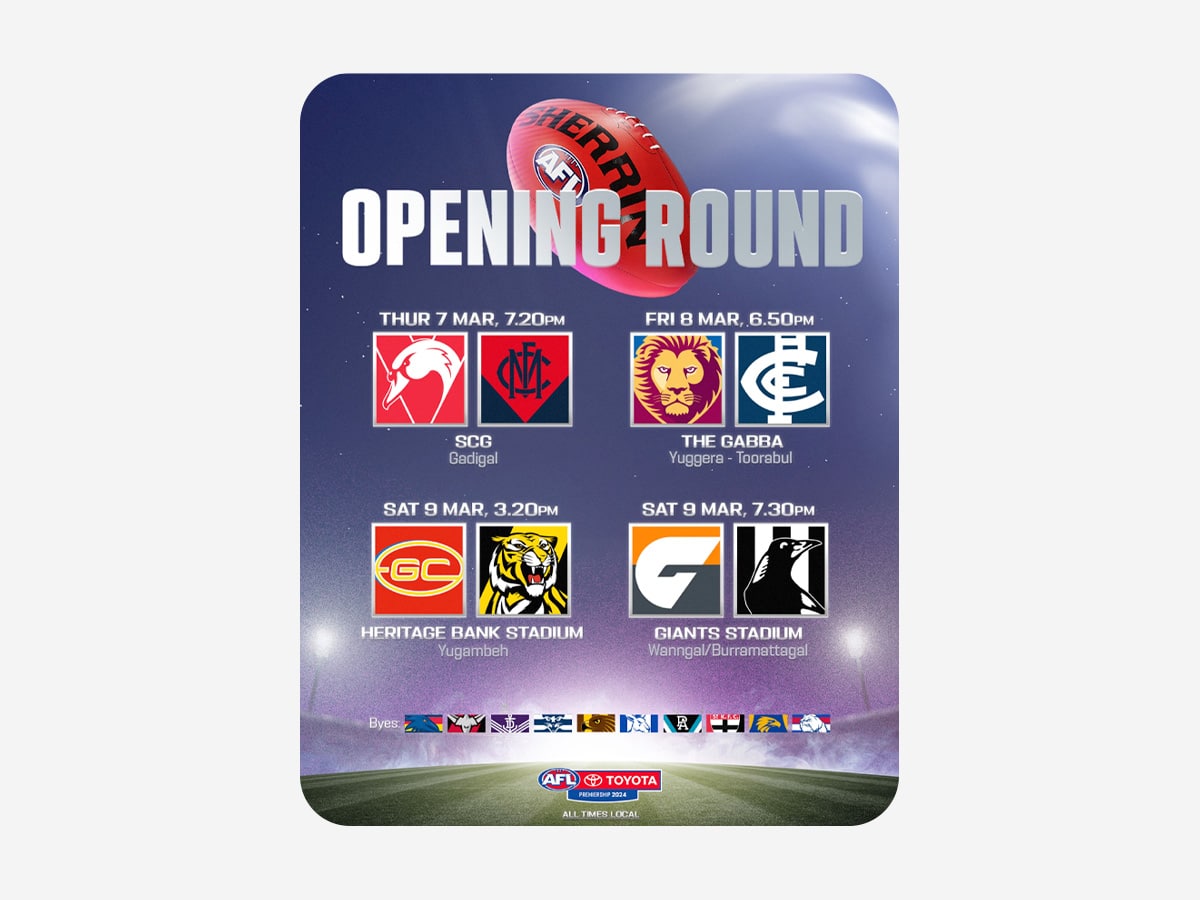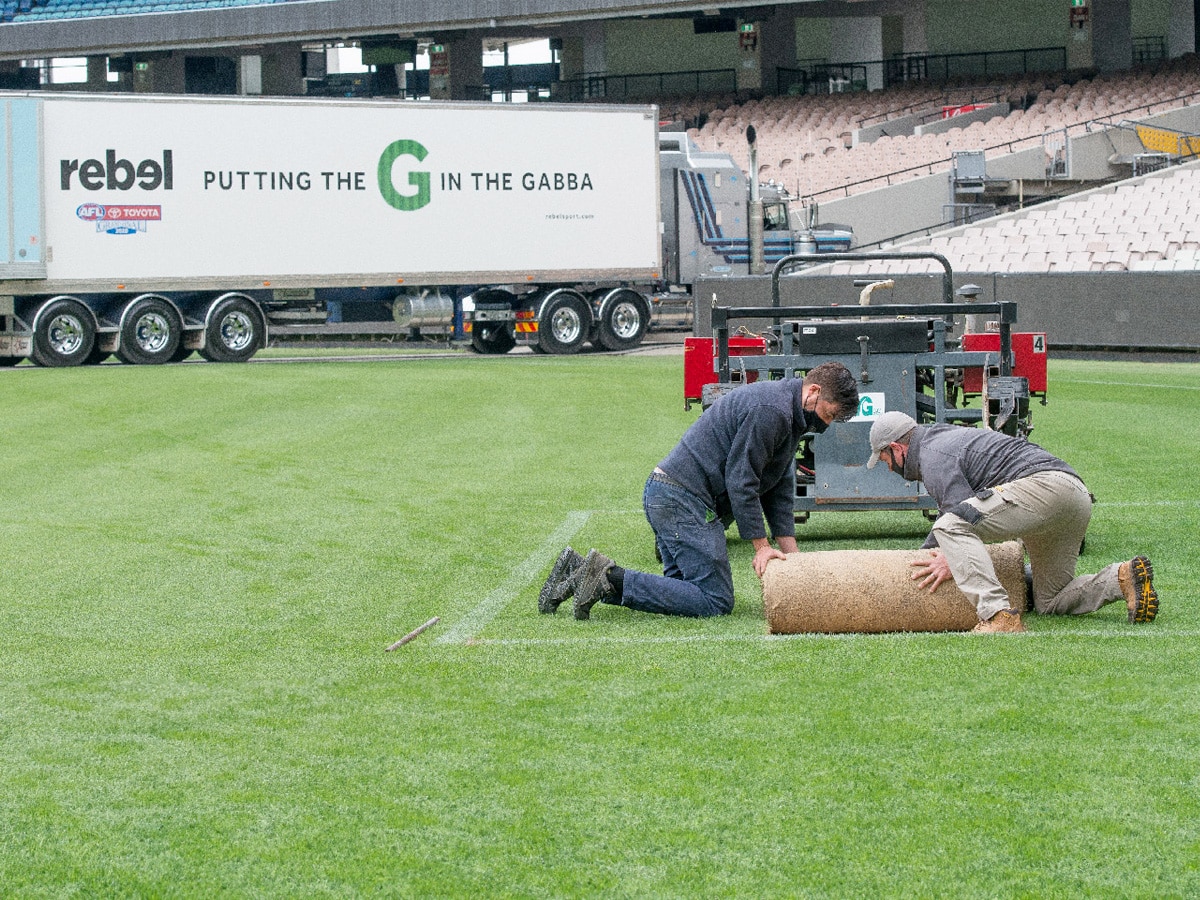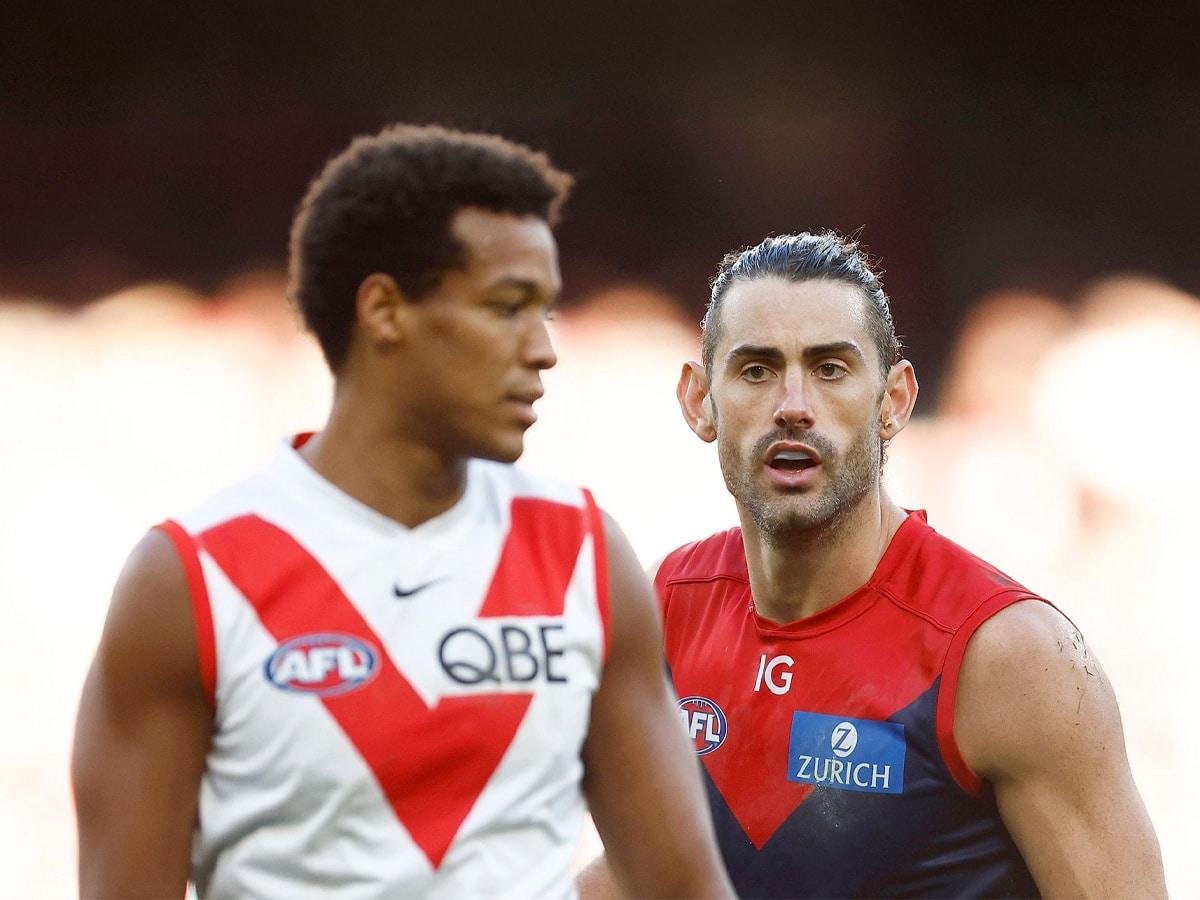Sports codes, like start-up businesses and the pimple on my back, require perpetual growth to be sustainable. It isn’t enough to merely exist, they need to swell and build, attacking new areas in the quest for evolutionary gain. This unsightly festering may lead to some irritation and discomfort but inevitably, the mounting pressure will eventually break the surface and erupt. Wednesday’s unveiling of the first four rounds of the 2024 AFL fixture may well prove to be the moment the pimple popped.
According to the AFL, the 2024 season will kick off with just four games on the weekend of March 7 to 9. Of these, two will be played in NSW, while the remaining two will be played in Queensland meaning that on the opening weekend of the sport‘s upcoming season, in which 10 teams call Victoria home, there will be no Victorian games.
The AFL has circumnavigated the 10-team bye problem by elongating the round, eerily similar to the NRL’s recently announced plans, with Carlton to take on Richmond the following Thursday to kick off a full set of matches.

Admittedly, there are some juicy match-ups on the opening weekend bill, but even those fail to capitalise on the spectator interest. The Swans v Demons clash to start the season will be played at the SCG, denying Melbourne fans the opportunity to see Brodie Grundy in red and white for the first time, which would no doubt have drawn an inspired crowd. Similarly, Greater Western Sydney will host Collingwood at Giants Stadium, a move that denies the reigning premiers a chance to kick off their title defence in front of a presumably sold-out Pies crowd.
Explaining the move, new AFL chief executive Andrew Dillon said the opening round fixture was introduced to help bolster the sport’s appeal in the northern markets.
“We were fortunate to be in a position where we were able to have access to our major venues in Queensland and NSW a weekend earlier than usual which gave us a unique opportunity to play these four games in key markets where footy continues to grow in popularity,” Dillon told AAP. “The four match-ups are big, with four of our biggest-supported Victorian clubs travelling north, and we look forward to starting our season with real momentum before we head into a blockbuster round of matches in round one.”
As Dillon alluded to, the announcement marks a continuation of the AFL’s vapid attempts to transform the sport into an arena spectacular. In 2020, a pandemic-affected season granted the sporting code an essentially risk-free opportunity to fulfil a long-time ambition; a night grand final. If it worked, the twilight game would become the new norm. If it failed, then CEO Gil Mclaughlin could blame it on the pandemic and remind us all of how lucky we were to receive a grand final at all. The results, and indeed spectator opinions, were mixed.

For purists, it was a travesty. The prospect of moving the game away from the traditional 2:30pm start time and the hallowed turf of the MCG was akin to sporting sacrilege, so much so that a piece of grass was spectacularly transported to Brisbane for the game, even if it was simply a marketing stunt for Rebel Sport. The playing surface was underdone and dewy, injuries dominated the opening minutes and arguably robbed fans of one last great performance from The Little Master, Gary Ablett Jr. But it didn’t matter. The AFL wasn’t concerned with satisfying the fans, it was targeting a new demographic.
Shifting the game to Queensland was a not-so-subtle attempt to target the NRL stronghold and attract a new breed of casual viewer. Short of an incredible performance from Dustin Martin, the game was a disaster, but the spectacle went off without a hitch. Thrills, spills and even a rock performance from Wolfmother frontman Andrew Stockdale, all under the occasionally unpredictable lights of the Gabba – to the casual fan, it was everything you could have asked for and more. And the ratings agreed.

Data from OzTAM revealed that the preliminary audience figure for the first-ever night grand final was the biggest since 2016, drawing in a whopping 3.8 million Victorian viewers. Thankfully, in the years that have passed, the AFL has returned to more familiar settings, but announcements such as the 2024 AFL fixture opening week demonstrate that the organisation is still not averse to moving the goalposts. What we’ve learned is that AFL is getting more strategic in its evolution and the introduction of a new Tasmanian team will do nothing to diminish its growth.
So, with the trajectory seemingly moving in the right direction, the question does beg to be asked – Why is the AFL, a sporting code that boasts three times the number of memberships than that of the NRL insist on following the framework of its rivals? If indeed it is a business decision, the organisation may do well to heed some tried and tested corporate advice – Don’t disregard your existing customer base by chasing new ones. Nurture always trumps neglect.
AFL Opening Round 2024
- Thursday March 7
Sydney v Collingwood, SCG – 7.20pm - Friday March 8
Brisbane Lions v Carlton, Gabba – 6.50pm - Saturday March 9
Gold Coast v Richmond, Heritage Bank Stadium – 3.20pm
GWS v Collingwood, Giants, Stadium – 7.30pm
Join Our Exclusive Community!
WINNER– Media Brand of the Year, 2025
WINNER– Website of the Year, 2024






























Comments
We love hearing from you. or to leave a comment.